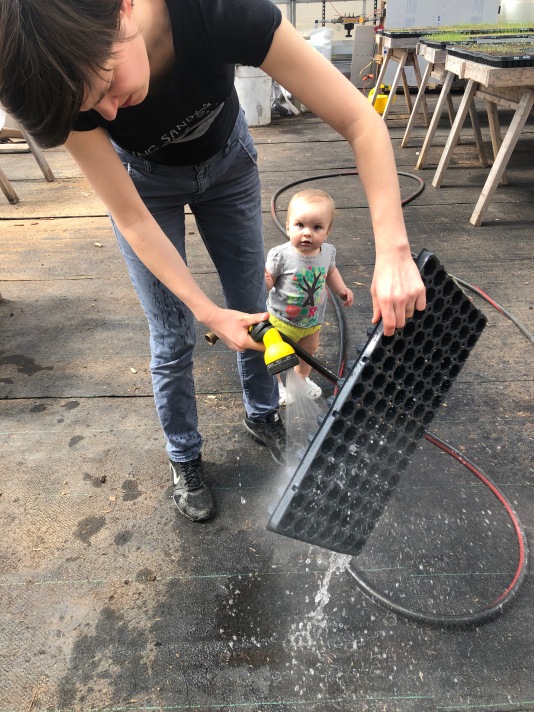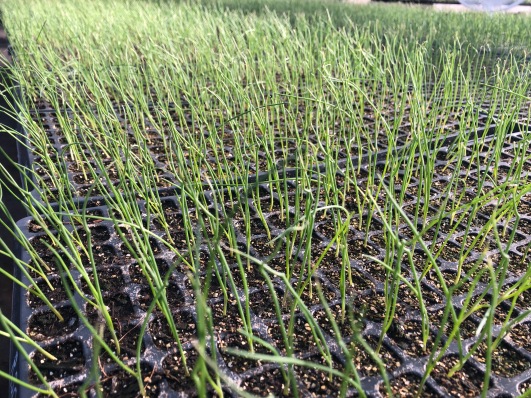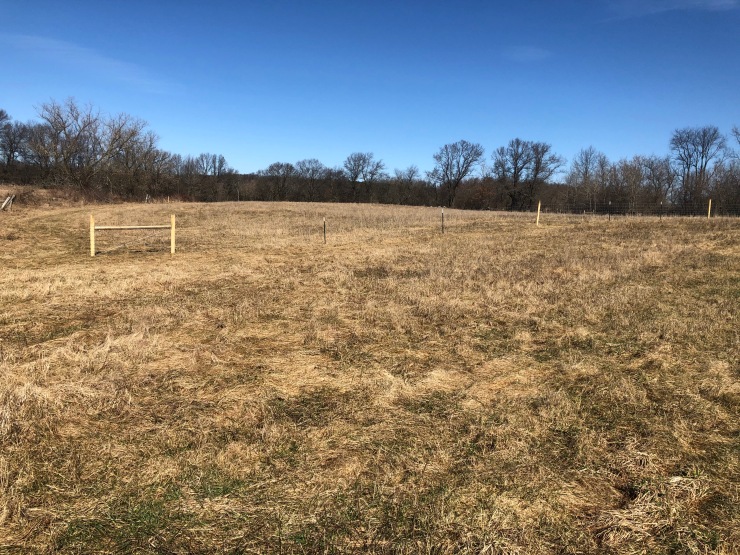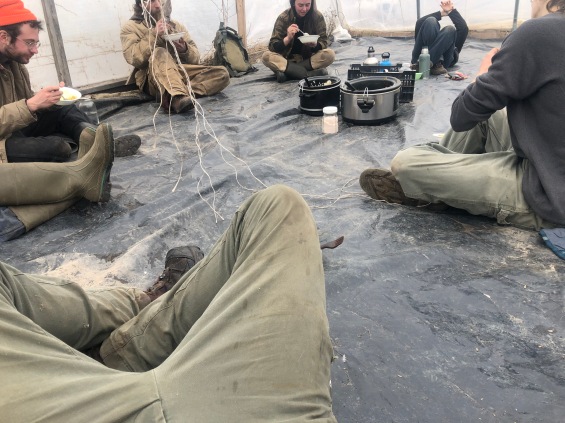Change, Love and Farming

It’s funny how things change. Shuffling slowly through the greenhouse the other day, keeping an eye on Ella while Fanni seeded trays of flowers, I ran my hands through the small green beds of tiny onions, remarking on the craziness of the fact that last year’s tiny onion fingers are now cured in a basket in our kitchen – some of the last remaining farm-fresh fare from last year’s efforts. In a wonderful cycle of care, the seedlings we’ve taken the time to nurture have come to nurture us in turn.
Ella, who had been splashing in a bucket of water, backed away unsteadily and fell swiftly to her butt; coating her new green shorts in a heavy layer of brown mud. Unfazed, she stood and resumed her curious splashing, while Fanni and I shared a laugh.
Ella, who, last year at this time, was a tumultuous force in Fanni’s midsection, to whom we’d given the nickname Scoot. We knew that she hiccupped, had immense bursts of energy, and occasionally delivered punches to my wife’s kidney, but beyond that, her identity was all but a mystery.
And what is identity but a function of time? The onions in our kitchen basket resemble those in the tray but little, and their development into full grown bulbs, then into soups and stews, is equal parts miraculous and predictable. All that’s needed is time and care.

Also does our collective identity unfold with time and care. Each season starts on a different energy, a different set of projects and a different vibration. Farming is, after all, a transformation business. We’re starting this season on a fundamentally different piece of land than we started season one, or two. I remember the gnarly patch of brush, vines and scrap metal where now stands our walk-in cooler. I step over what’s left of the trenches we dug when we buried irrigation and electrical lines. I look back fondly on those late evenings with Fanni, Oren, Polly and myself hoisting rocks and swinging mattocks. I loved it. I’ll never forget loading the old pack shed on the trailer and dragging it out of that field, or carting loads of hoophouse hoops with my dad’s trailer and our old white F350. I loved that, too. There were no vegetable plots or hoophouses here when we arrived. Just a skinny snow-covered driveway and busted-up barn. The driveway is still skinny and the barn is still busted, but when I think of it all, I’m proud of what we’ve done.
The physical change is evident and continuous. In a matter of weeks or months, we’ll have a fully functioning fence, retrofitted for rotational grazing, and we’ll start next season under a different set of assumptions and principles around animal expectations and plans. A different energy, a different set of projects and a different vibration.

It’s also funny how things don’t change. Sunday, I finished a call with Oren and shut off my phone for the rest of the day. We had been talking about how to spread the true intellectual burden of farm ownership equally between us. “The problem is that nobody else was thinking about how those hoophouse plantings were going to get water, besides Polly and me.” He was right, and we’ve been having this conversation for three years now. Some of us wonder how we are going to spread these responsibilities equally, as co-owners. Others wonder about the practicality of our intense, and often toxic, communication patterns as co-owners. Three seasons in, and we still communicate this way. Can we change?
As for me, I question everything nowadays. I question the efficiency and effectiveness of our operation and our culture. I question the true nature of our decision-making processes, and the reality of the cooperative. I question the feasibility of farming long-term, with a team of 10 other people. At least the feasibility of my farming long-term with a team of 10 other people. Now, coming into my own as a farmer, with my own ideas and sets of expectations, I see a vision of where I want us to be, and I see the reality of where we are. Perfectly good work days go to hell in the confines of my own mind, beneath the weight of my own expectations for myself and others. I wonder if I need to find a way to remold my patterns of thought, and simply bask in the joy of the work and the beauty of the friendship and fellowship, like I used to. Should I change?
Change is hard. Farming is hard too; particularly farming with other people. The emotional toil is equal or greater than the physical, and it takes a great deal to maintain relations through the rigors of the demanding and intensive farming season. It’s why we spend hours on the phone or in-person, talking to and about each other, and how we can make this thing work. It’s why we have sabbatical built into our structure. It’s why, for all of my love for this practice, I spend too many hours in my own head, thinking about how it could be. I love it; I really do. But love is hard, too.
